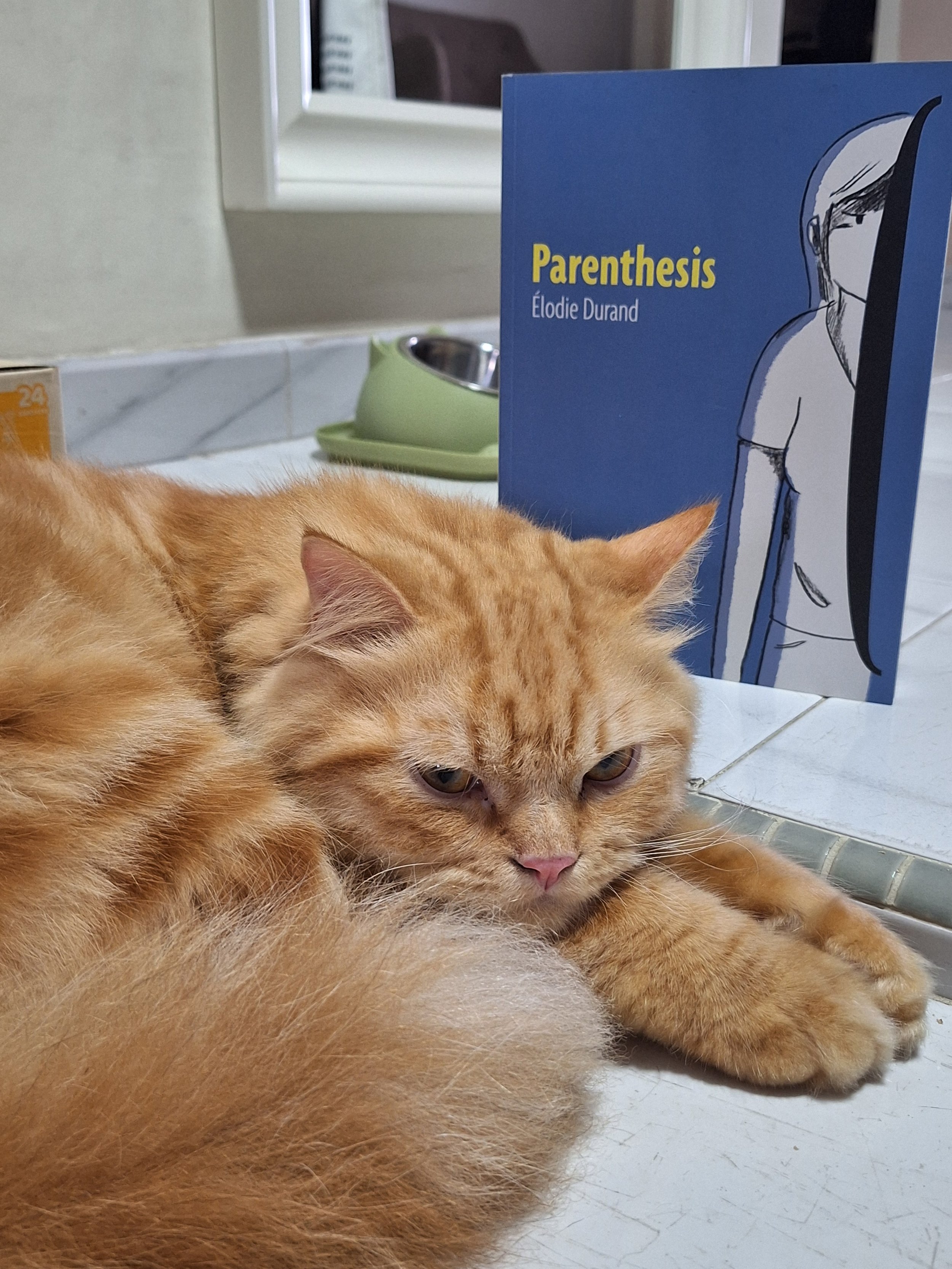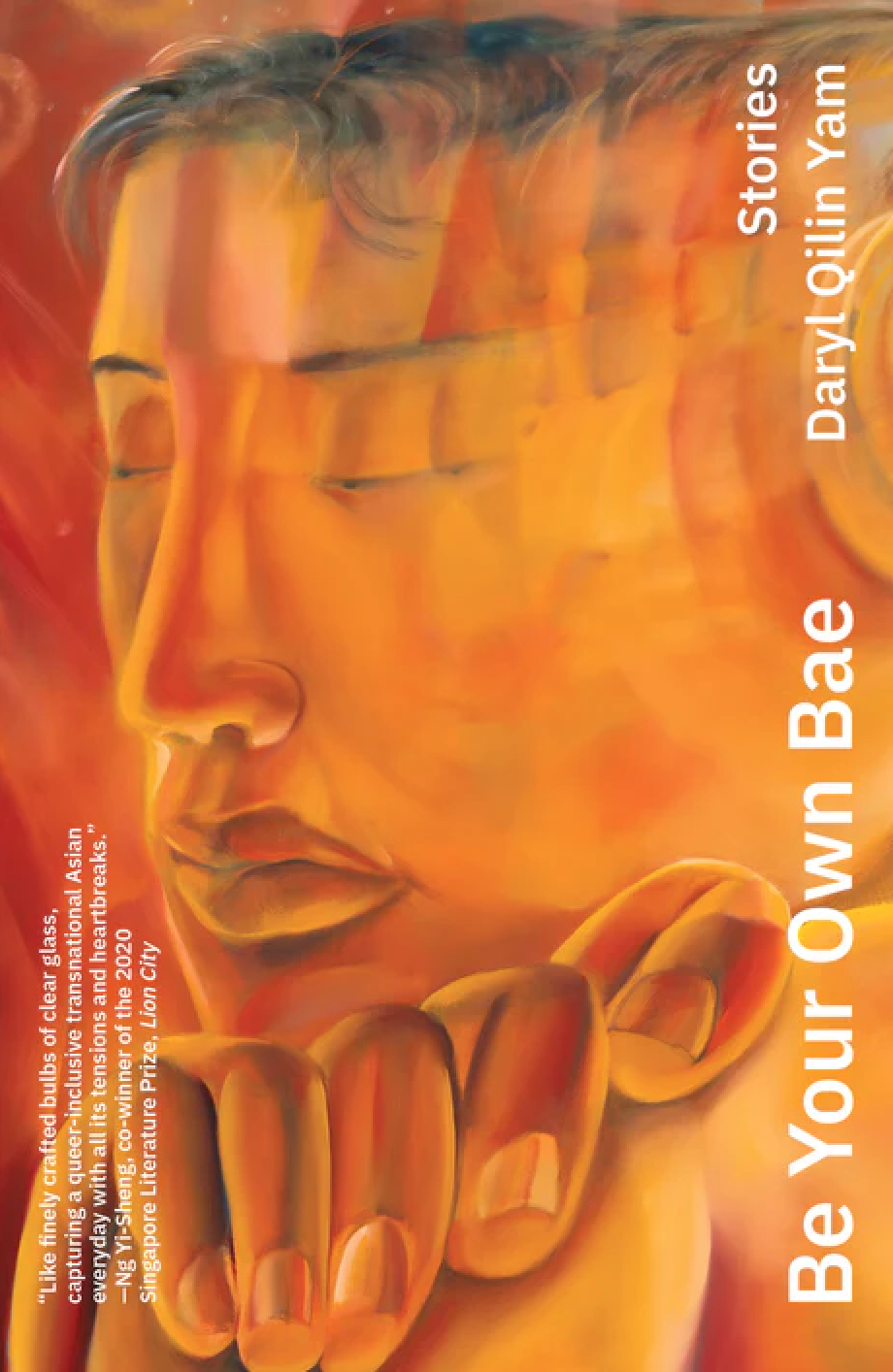Family Recipes
By Samara Choudhury
Review of Sweet Malida by Zilka Joseph (New York: Mayapple Press, 2024)
Alecia Neo - HOT POT TALK: The Measure of a Meal (2021)
Image description: A fist is clenched against a dark background. A powdery material covers the fist and falls downwards from it.
In Sweet Malida, Zilka Joseph’s most recent poetry collection, the poet navigates two losses: the death of her parents and her migration away from her family. Sweet Malida is an immigrant’s love letter, perhaps even an apology, to her homeland. Joseph’s experience growing up as a part of the Jewish Bene Israel community of Maharashtra in the western and central part of India forms the core of her collection. Through the varying forms and tongues incorporated by Joseph into her poetry, Sweet Malida stresses the amalgamation of Jewish religion and South Asian culture during Joseph’s childhood. As the daughter of two Bengali immigrants in America, I may not have had as wholly South Asian an upbringing as Joseph, but I too have had a cross-cultural experience growing up in New York. Her poems resonated with me in their unapologetic celebration of her culture, as well as the alienation she feels from being separated from her roots in the present-day.
Joseph begins and concludes her collection with two poems contemplating the history of her family: “What’s In My Bones” and “Once Upon a Shabbath.” The former poem primarily features the past tense, with Joseph juxtaposing prose with poetry to introduce the reader to her family and, by extension, her Bene Israel community. The theme of nautical travel is particularly prevalent in this poem, as Joseph ties the Jews’ shipwreck in India centuries ago to her father’s time as a marine engineer. Her direct family’s recent history serves as a metaphor for the Jews’ naval arrival.
Alecia Neo - HOT POT TALK: The Measure of a Meal (2021)
Image description: Against an off-white background, a large piece of green leaf is balanced on top of four hands.
Having lost both of her parents, Joseph suffuses her collection with grief and regret, but also with the wish to “bring [her parents [back] to life again in [her] poems.” Throughout Sweet Malida, Joseph uses food to perform her family’s resurrection—food is memory for her. In the poem, “The Laadu Makers,” my favorite of Sweet Malida, she remarks, “So much is fading already, but the tastes never do. Neither do the smells, the smiles or the sorrows.” A celebration of the poet’s roots, Joseph’s collection takes the reader on a journey through the menu of Joseph’s youth, from beverage to curry to dessert. She again expresses her appreciation of food as a beacon of memory when she later writes in “The Laadu Lovers”:
[The laadu] is not a figment of my imagination. It’s what makes it all real. That the joy existed. That my parents, Ruby and Sunny, existed, and my grandma Hannah, existed.
The elapsed existence of both the joy and Joseph’s family indicates the sadness she feels now, without the laadu and, more significantly, without a connection to her Bene Israel community. Happiness is fleeting in Sweet Malida; it is present only in the memories of Joseph’s childhood. The pain of migration permeates Joseph’s poetry; however, she suggests that she must reflect upon and acknowledge her alienation from her homeland in order to regain a connection with it. Joseph hints at a feeling of separation from the rest of the Indian subcontinent in her titular poem, “Sweet Malida,” when she writes, “We had many foods / in common with our Muslim, / Christian and Hindu neighbors, / and we often celebrated together their festivals or ours.” Though she conveys a surface-level sense of unity with other religions, Joseph notably never includes “we” on the same line as the mention of another group of people.
Alecia Neo - HOT POT TALK: The Measure of a Meal (2021)
Image description: Eggs are scattered across a cement ground. Human feet step on the ground, in the spaces between the eggs.
Besides food, religious motifs also help to revive the presence of the dead. Crows recur as a motif throughout Sweet Malida, almost always attracted by the aroma of Joseph’s childhood culinary delights to perch on her family’s kitchen windowsill. In Hindu tradition, crows are believed to serve as messengers between the physical and spiritual worlds; they are the messengers of ancestors. Through crows, Joseph implies that her culture’s food brings lost loved ones back to life, just as she set out to do at the start of her collection in “What’s In My Bones.” At the conclusion of her collection, she immerses the reader in a dream, writing in the poem “Once Upon a Shabbath”:
At the dining table stand
my mother and father, faces lit up.
Behind them, ancestors shimmer.
As I light my tea lights, blue
flames glow in azure bowls.
I raise my palm in prayer,
say the words they taught me to say.
My beloveds are with me.
That is blessing enough.
The final poem, unlike the past-tense “What’s In My Bones,” is tethered to the here and now. Joseph utilizes the present tense to submerge the reader in her present life in America. Only through food and prayer, metonymy for the fusion of her South Asian culture and Jewish faith, can Joseph successfully memorialize her lost loved ones.
Before reading Joseph’s collection, I had no knowledge of a Jewish community in India. She made me aware of one through her poetry, to the point that I even see similarities between the Bengali food I grew up on and the food she describes in Sweet Malida. Her halwa is my haluwa, and her laadu is my narkeler naru. Joseph’s collection is not only about her grief and guilt, but also about raising awareness of her native community. Though she regrets in “The Laadu Makers” that she did not write down her family’s recipes, Joseph succeeds in ensuring that her family and her Bene Israel community live on by memorializing them with the written word.
Alecia Neo - HOT POT TALK: The Measure of a Meal (2021)
Image description: Against a white background, a hand is clenched around a plastic bag that holds a yellow-brown condiment. The condiment leaks from the bag and flows down the hand.
Samara Choudhury is a Bengali-American student who graduated from The Brearley School in New York City. She will attend Princeton University in the fall as a comparative literature major.
*
Alecia Neo is an artist developing long-term projects involving collaboration with individuals and communities. Her socially engaged practice unfolds primarily through lens-based media and participatory artworks that address modes of radical hospitality and care. Care Index, her ongoing research which focuses on the indexing and transmission of embodied gestures and movements emerging from lived experiences of care, has been presented at the Singapore Art Museum, The Esplanade: Theatres by the Bay, The Listening Biennial, ArtScience Museum, Assembly for Permacircular Museums (ZKM Center for Art and Media Karlsruhe), New Season of Care (Asia-Art-Activism) and Presence of Mind (Gallery Lane Cove, NSW, Australia).







In Taiwan Travelogue, ‘twinned souls… are at once lost, but also found, in translation.’ A review by Eunice Lim.